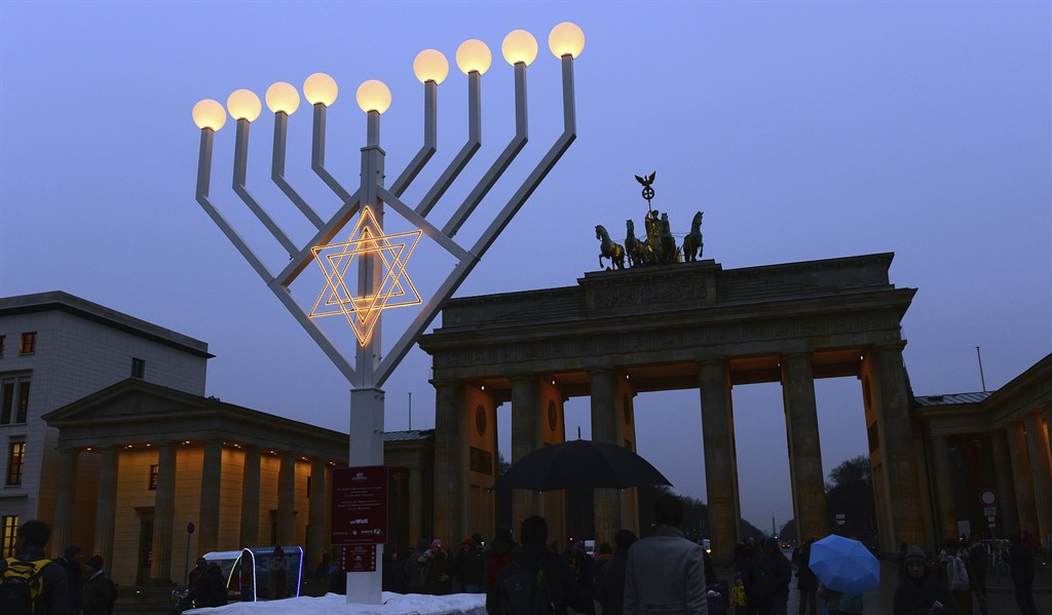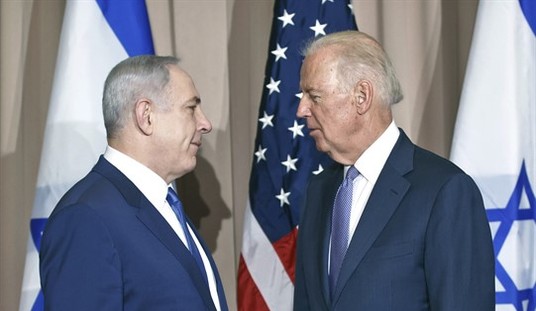Tonight begin the eight days of Hanukkah, the Festival of Lights that commemorates the purification of the Temple at Jerusalem after the expulsion of the Antiochus IV Epiphanes’ occupying army in 167 B.C.E. It was as much as a Jewish civil war as a war of liberation; large parts of the Jewish elite embraced Greek occupation and Greek culture. The Jewish Hellenizers still have their defenders, for example, New York Times columnist David Brooks, who a dozen years ago wrote:
At its best, Hellenistic culture emphasized the power of reason and the importance of individual conscience . . . . It raised living standards, especially in places like Jerusalem. Many Jewish reformers embraced these improvements. The Greeks had one central idea: their aspirations to create an advanced universal culture. And the Jews had their own central idea: the idea of one true God. The reformers wanted to merge these two ideas.
The same spirit today wafts over liberal Jews in the United States, three-quarters of whom intermarry, and whose children (if any there be) are mostly lost to Judaism forever. In the eyes of the liberals, the back-country Jewish patriots who expelled the Greeks seem like hidebound fanatics. The Hellenists were the ultimate hedonists, clever, urbane, witty, perverse, and tired of life.
Related: Hanukkah 2021: A Guide to the Jewish Holiday
The Greek civilization that Antiochus IV imposed on the Jews was dying, the first well-documented historic example of geno-suicide. The universal Greek culture of the Mediterranean and Western Asia that prevailed after the death of Alexander the Great in 323 B.C.E. doomed itself.
As I reported in my 2011 book How Civilizations Die:
Our best source on the declining Greece that failed to resist Rome is Polybius (220–146 BCE), a prominent Greek general who became the tutor to the future Roman conqueror of Carthage. Meditating on the cause of his nation’s fall to Rome, Polybius blames the Greeks’ refusal to raise children: In our time all Greece was visited by a dearth of children and generally a decay of population, owing to which the cities were denuded of inhabitants, and a failure of productiveness resulted, though there were no long-continued wars or serious pestilences among us.
Numerous contemporary sources attest to the destruction of female children. The third-century Macedonian poet Poseidippus of Pella wrote, “Even a rich man always exposes a daughter.” A 200 B.C.E. survey of seventy-nine families in Miletus, an ancient Greek colony on the Western Turkish coast, show a combined total of 188 sons but only 28 daughters. Another survey at Eretria in central Greece reports that only one of twelve families had two sons, and almost none had two daughters. The Greek geographer and historian Strabo (63 B.C.E.–21 C.E.) described Greece as “a land entirely deserted; the depopulation begun since long continues. Roman soldiers camp in abandoned houses; Athens is populated by statues.” Plutarch observed that “one would no longer find in Greece 3,000 hoplites [heavy infantrymen].”
The Hellenistic Greeks were clever, to be sure. Hero of Alexandria invented the steam engine as well as linear programming (using a system of knots on ropes drawn by pulleys). Menander invented comedy as we know it, and Lucian of Samosata gave us the model for Goethe’s “Sorcerer’s Apprentice” as well as Potocki’s The Manuscript Found in Saragossa. But they were the first documentable culture of death, in which the blandishments of hedonism eroded the impulse for self-perpetuation.
If Antiochus IV had succeeded in destroying Judaism in the 2nd century B.C.E., the Jewish people would have vanished into history like the innumerable tribes and peoples who were absorbed into Hellenistic culture and with them would have gone extinct.
Jews do not celebrate the military victories of Jewish farm-folk over more numerous and better-armed Greek mercenaries, extraordinary as they were: The festival lights recreate the Eternal Light of the Second Temple at Jerusalem, which the Romans would destroy in C.E. 70. As I explained in a 2009 essay, “Hanukkah transplants another dimension of the holiness of the Temple into the Jewish home: the seven-branched Menorah, which can be seen on the Arch of Titus at the ancient Roman Forum, carted away by Roman soldiery. The eight-branch menorah of Hanukkah, once a year, is lit in continuity with the purloined Menorah, not as a remembrance, but as a living recreation of the eternal flame.”
One cannot pass one’s pleasures — be they aesthetic, intellectual, gastronomic or sexual — to one’s children. To hedonic cultures, children are at best an interruption of pleasure-seeking. But one can pass on to one’s children the surety of God’s promise and the wonder of God’s presence in our lives, and that is why observant Jews have so many of them. Israel is the only industrial nation with a fertility rate above replacement (at 3.1 children per female, Israel is far above replacement).
Our ancestors of blessed memory knew that they were fighting for life itself against a culture of death. That is our mission: To choose life. And our hope is that all the nations of the world will choose life as well.









Join the conversation as a VIP Member